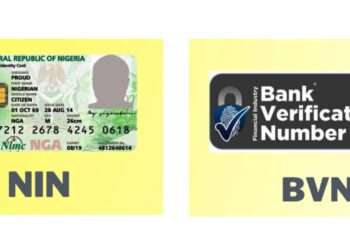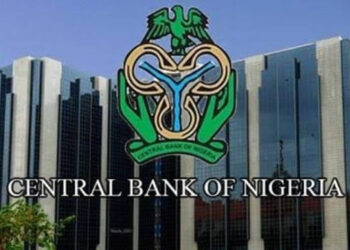The value of electronic payment transactions in Nigeria declined by 5% in February despite the scarcity of cash during the period. This was revealed by the Nigeria Inter-Bank Settlement Systems (NIBSS) in its latest data.
The total value of e-payment in the country fell from N38.8 trillion recorded in January to 36.8 trillion in February. This shows that even in the absence of cash, Nigerians made fewer transactions electronically.
The development may not be unconnected to the fact that several small businesses collapsed as a result of the cash scarcity, thus people had less to spend in the month.
However, the volume of electronic transactions for the month increased from 541 million in January to 787 million in February, an indication that though more people made payments electronically in the month, the value of their transactions was lower than in January.
The unintended impacts of CBN policy: While e-payment has been gaining traction in Nigeria over the years, more Nigerians were forced to go cashless towards the end of January as the first deadline for the old N200, N500, and N1,000 drew closer. The scarcity of cash in circulation also pushed many to various electronic payment channels.
- However, the policy began to have unintended impacts by February as merchants who were hitherto accepting electronic payment began to reject it as the cash scarcity bitten harder.
- Some merchants who needed cash to meet some basic needs began to reject electronic payments from their customers, not minding the impact on sales.
- Some major petrol stations in Lagos and Abuja that were accepting PoS for payments even before the cash scarcity stopped doing so in February as they insisted on cash payment. This forced many who needed fuel urgently to go and source cash before they can buy fuel.
- Findings by Nairametrics revealed that most of the stations rejecting e-payment were selling the cash they collect from sales to PoS agents at a premium.
- With the increase in failed transactions as a result of inadequate capacity by banks, many businesses were also rejecting online payments because they had lost money due to failed transactions.
Meanwhile, Nigerians continue to face serious challenges from all payment channels. In the last seven weeks, Nigerians have had to cope with no payment from banks, Automated Teller Machines (ATMs); exorbitant charges from PoS agents, the crash of bank apps, and the Unstructured Supplementary Service Data (USSD).
Cash withdrawal limit to sustain growth: It is expected that the revised cashless policy, which limits the amount of cash that can be withdrawn by individuals and corporate organizations, will further drive a surge in electronic transactions across the country. This is despite the fact that the naira scarcity challenge is expected to ease with the announcement from the Central Bank of Nigeria (CBN) declaring that the old N1,000 and N500 will continue to be legal tenders until the end of this year, in compliance with the recent Supreme Court ruling.
- According to the new policy which followed the redesigning of N1,000, N500, and N200 notes, effective from January 9, 2023, cash withdrawal by an individual is now limited to N500,000 a week, while corporate organizations have an N5 million withdrawal limit in a week.
- Amid the scarcity of the new notes, banks have also configured their ATMs to allow a maximum of N20,000 withdrawal per person in a day.






















Was the analysis adjusted to account for the fact that January has 31 days while February has only 28? It’s possible that the two-day difference between the months could be the main reason behind the 5% drop in e-payment transaction volume.